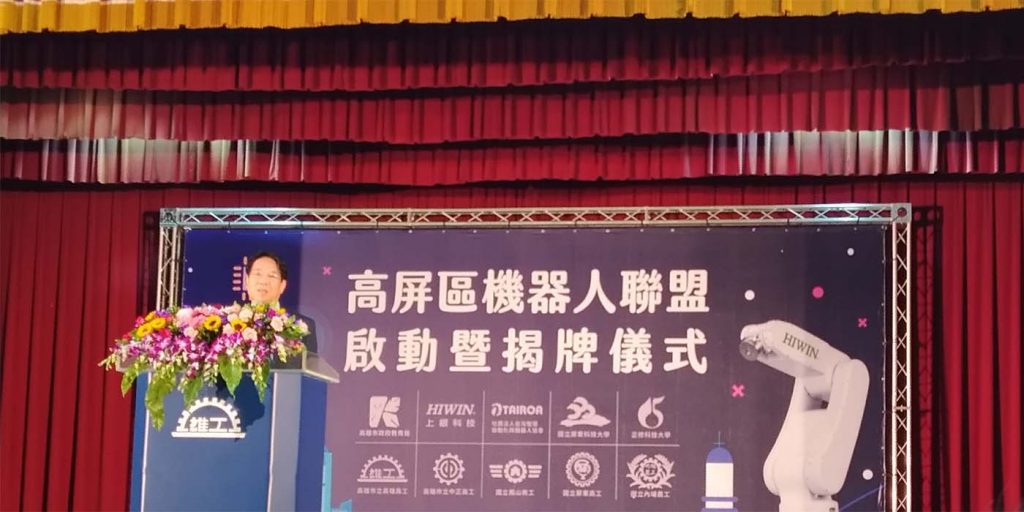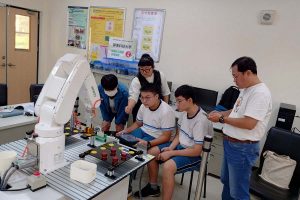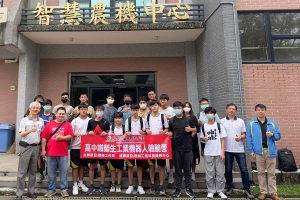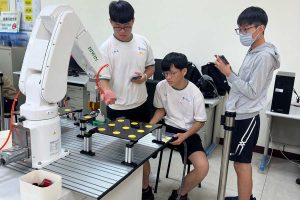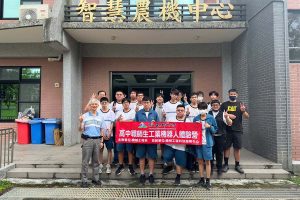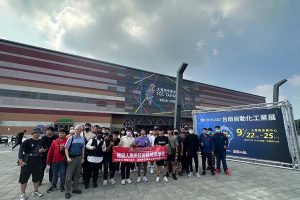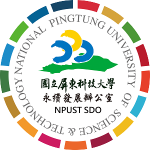In recent years, the National Pingtung University of Science and Technology (NPUST) Department of Mechanical Engineering began using various industrial robot arms in the classroom to teach students how operate real-world industrial equipment. It also began working to equip more teachers and students on campus with the knowledge and skills they need to pass the robotics engineer technical examination; with more than 100 successful cases so far. Their robotics education is also extending beyond the campus gates through programs created for vocational high schools in the Kao-Ping area (Kaohsiung/Pingtung). To further these initiatives, NPUST recently called for the formation of the “Kao-Ping District Robot Alliance” which brings together for a common pursuit Cheng-Shiu University and five vocational schools in the Kaohsiung and Pingtung area (Kaohsiung Municipal Kaohsiung Industrial High School; Kaohsiung Municipal Chung-Cheng Industrial High; National FongShan Senior Commercial & Industrial Vocational School; National Pingtung Industrial Vocational High School; and National Nei-Pu Senior Agricultural-Industrial Vocational High School). Taiwan’s renowned domestic robot manufacturer, HIWIN Technologies Corp, and the Taiwan Automation Intelligence and Robotics Association will also be participating joining in on the new enterprise.
The alliance became official on September 14 (2023), with a ceremony held at the Kaohsiung Municipal Kaohsiung Industrial High School. Kaohsiung City Deputy Mayor Ta-Sheng Luo attended to witness the occasion. President Chin-Lung Chang of NPUST was also in attendance, and took the opportunity to sign a memorandum of cooperation with the other alliance members.
In a speech, NPUST President Chin-Lung Chang said “the strength of NPUST rests on its agricultural technology. We emphasize the use of robots for various agricultural tasks. This is the result of the cross-domain integration of agriculture and engineering. NPUST has established a robotics engineer certification examination room on-campus, and has helped more than 100 students obtain certificates. Not only will this alliance create a close link between universities and vocational high schools, but will also contribute to economic and technological development in the future.”
Kaohsiung City Deputy Mayor Ta-Sheng Luo said “the establishment of this alliance helps drive industry and academia; not only streamlining the path from vocational high school to university, but also helping to integrate the region. We trust that the promotion of the alliance will be beneficial to technical and vocational education and help close the gap between industry and academia. The application of robots in industry is an important trend internationally, and is especially appreciated when it comes to the development of local manufacturing. In addition to the rapid advancements in technological competitiveness, talent cultivation will be an important aspect of the competitiveness of the entire city”.
Director Sun-Li Wu of the Department of Engineering noted that “NPUST has held three industrial robot experience camps for high school vocational students in the past three years, inviting more than 100 teachers and students from Kaohsiung Industrial High School, FongShan Senior Vocational School, Pingtung Industrial Vocational High and other schools to come experience operations at the NPUST Robot Laboratory. The experience camps are arranged to introduce teachers and students to industrial robot applications, and teach them how to operate robot arms and write control programs. The students are familiarized with the working principles of the robot arms, and at the end are asked to write a control program to let the robot arm complete simple tasks. The participating students have all felt a great sense of accomplishment and developed an interest for the automation industry”.
When companies face labor shortages or need to reduce personnel costs, they may look to replace human labor with robots on the production lines. Generally, robots should have the same functions as those provided by human arms, eyes, feet, and brains. The Department of Mechanical Engineering offers a “Cross-domain Micro Course on Robot Technology Application”, covering “Robotic Arm Practical Application”, “Machine Vision Practical Application”, “Smart Automation and Advanced Robot Technology”, and “Application of Artificial Intelligence in Robots”. These four main courses teach students about robotic arms (hands), machine vision (eyes), autonomous mobile vehicles (feet) and artificial intelligence (brains), allowing them to learn a complete set of skills in automation.
This year, the Department of Mechanical Engineering also arranged for students taking the micro-course to visit the “2023 Tainan Automation Industry Exhibition” in Tainan on Sept. 22 (Friday) so they could have a close look at the automation components and equipment displayed by the manufacturers, and to learn about their specifications, features and uses. The aim is to do more than cultivate kills and knowledge, but also help students get closer to the job market, and get familiar with the professional skills needed by the industry so they can work together to solve the problem of worker shortages.




